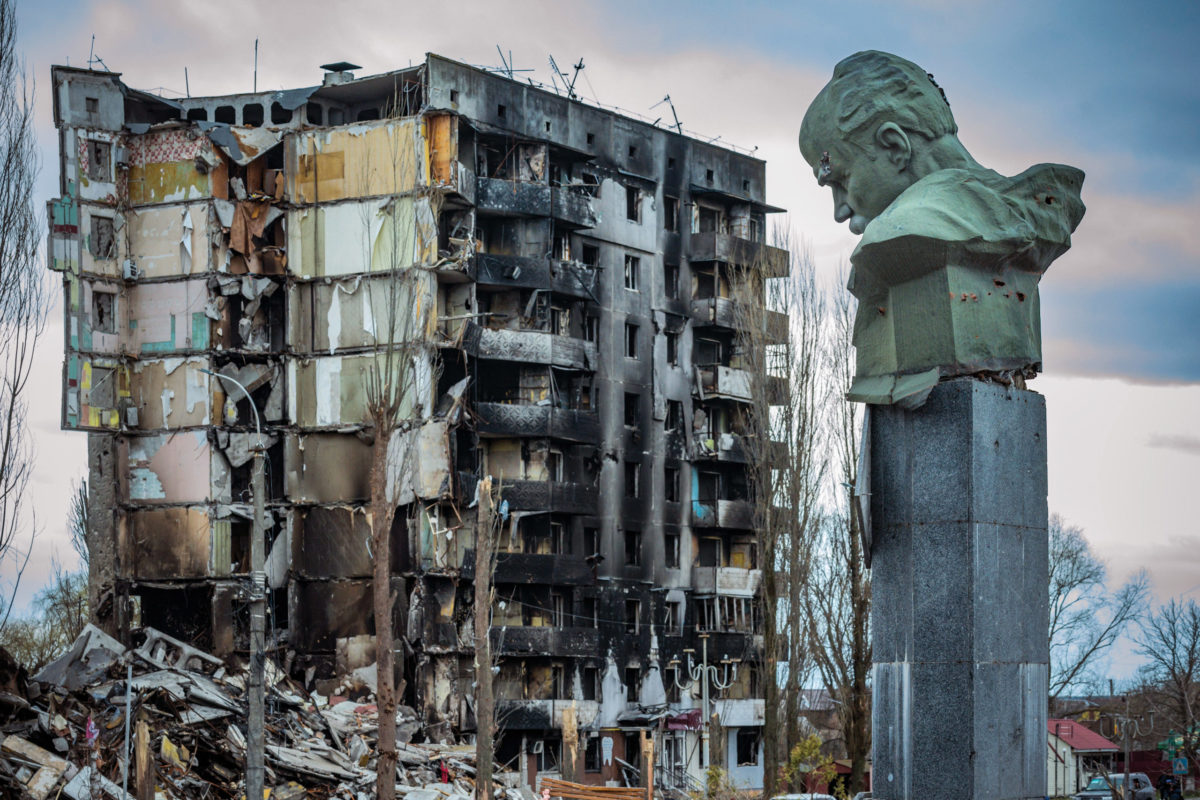Taras Hryhorovych Shevchenko (1814-1861) remains Ukraine’s most revered poet. He was also a renowned artist, playwright, and ethnographer of Ukrainian life as it existed under oppressive Imperial Russian rule. Of Cossack lineage, he was born a serf in the small village of Moryntsi, located at nearly the exact center of Ukraine, about 80 miles due south of Kyiv. Although czar Peter the Great had abolished slavery, per se, throughout the Russian Empire in 1723, he nonetheless strengthened the feudal-style system of serfdom that bound peasant serfs to the land they inhabited. This system of being enslaved to the land owned by aristocrats or wealthy landowners continued until Czar Alexander II permanently abolished the system in 1861—the official manifesto dated just seven days before Shevchenko died at age 47.
The best-known collection of Shevchenko’s poetry, the work that established his enduring reputation as a brilliant poet, is the 115-page book collection of eight poems, Kobzar. A kobzar was an itinerant Ukrainian musician who traveled from village to village singing and playing his kobza, a multi-stringed instrument.
First published by Shevchenko in St. Petersburg in 1840, it was republished twice during his lifetime (1844 and 1860) but was immediately censored by czarist officials. Obsessed with perpetuating Russian dominance over the czar’s multi-ethnic empire, official censors brutally suppressed any manifestation of non-Russian ethnic nationalism, such as Shevchenko’s pride in his distinctive Ukrainian culture.
Censors banned Kobzar for what they claimed was the author’s lack of sufficient gratitude for being redeemed from serfdom (his mentors and supporters purchased his freedom in May 1838), for writing it in the “Little Russian” (i.e., Ukrainian) language, for alleging that Russia “enslaved” Ukraine and Ukrainians (which was essentially true), for glorifying the freedom of Cossack culture and lifestyle, and for slandering the czar (Nicholas I), czarina, and the Imperial family.
In 1847, Shevchenko was convicted of crimes against the state and exiled as a private soldier—specifically prohibited by czar Nicholas from writing and painting!—to a series of bleak, isolated Russian military garrisons in Siberia and central Asia.
His final seven years in exile were spent at one of the worst penal settlements, Novopetrovskoye on the Caspian Sea’s eastern shore in Kazakhstan. Shevchenko finally returned from exile in 1857, although he remained under police surveillance after an amnesty granted by Czar Alexander II.
During Shevchenko’s life, he was a serf for 24 years, a free man for only 9 years, and a prisoner in Siberian exile for 10 years. He died on March 10, 1861, in St. Petersburg due to debilitating illnesses and deteriorating health following his Siberian exile. Initially interred in Smolensk Cemetery in St. Petersburg, his friends and admirers arranged to have his remains reburied on Taras Hill in Kaniv, central Ukraine, two months later.
Even today, a century and a half after his death, Shevchenko’s poetry and art continue to galvanize Ukrainian identity. His memory and spirit were widely invoked to inspire the 2013-2014 Maiden Revolution and fuel Ukraine’s resistance to the 2022 Russian invasion.
The following poem excerpt, composed by Shevchenko over 150 years ago, reads as if he is describing Ukraine’s agony today.
UKRAINE AFLAME
…The people die—
Within their prisons they are
slaughtered;
Children without a God or friend
The Kozak children—and the
daughters.
The beauty of the native land
Are held in bondage…
Ukraine is flaming to the sky:
Through villages the naked children
Weep for their fathers.
Faded leaves
Are rustling o’er the lifeless meadows,
The clouds are drowsing, sun’s asleep,
And villages draw howling shadows
Which scent the corpse…





